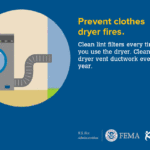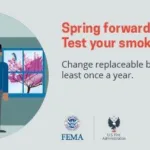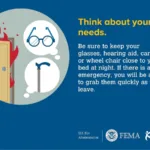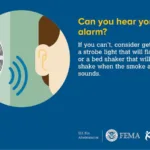Paul Januszewski, Fire Chief
11 Broadway
North Haven, CT 06473
For Immediate Release
Monday, March 11, 2019
Media Contact: John Guilfoil
Phone: 203-404-7751
Email: john@jgpr.net
North Haven Fire Department Reminds Residents of Spring Fire Safety Tips
NORTH HAVEN, Connecticut — With the first day of spring next week and warmer weather on the way, Chief Paul Januszewski and the North Haven Fire Department would like to provide some seasonal safety tips for residents.
“Spring is a great time of year for getting outside and getting your hands dirty with yard work or cleaning projects around the house,” Chief Januszewski said. “We want everyone to be safe as they start these household projects and break out their grills for cooking.”
Spring Cleaning Safety Tips
- Clean your garage, basement or other storage areas of stored newspapers or other rubbish that can fuel a fire.
- Clean lint filters every time before you use your dryer. Also check the outside exhaust vent for any lint that may be obscuring or blocking the vent.
- Keep outdoor debris or dead vegetation away from the house.
- Properly dispose of oily or greasy rags. If these items must be stored, they should be kept in labeled, sealed, metal containers.
- If you store gasoline for lawn mowers, keep it outside your home in a shed or detached garage. Keep only small quantities in tightly sealed containers. Use gasoline only as a motor fuel – never as a cleaning agent.
- Use outdoor barbecue grills with caution. Place them in a safe area away from buildings, windows, heating, ventilation and air conditioning units or places with high/dead vegetation.
- Use barbecue grills outside only – not under overhangs or balconies, and away from combustibles.
- Never use gasoline to start a fire, and don’t add charcoal lighter fluid once the fire has started.
- Check your propane barbecue grill hose for leaks and cracks; never store propane indoors.
- Do not mix ammonia with bleach. When cleaning with chemicals be sure to open a window or door to ventilate the room you are cleaning.
- Keep all chemicals and cleaning products out of reach from children.
Spring Forward
Although Sunday was the beginning of daylight saving time, if you have not tested your smoke detectors and carbon monoxide detectors, now is the perfect time to do so.
In order to continue to keep your home safe and prevent fires, Chief Januszewski recommends that residents follow safety tips outlined by NFPA:
- Test smoke and carbon monoxide alarms at least once a month using the test button. Replace alarms immediately if they don’t respond properly when tested.
- Replace batteries in smoke and CO alarms when you change your clocks.
- Replace all smoke alarms when they reach 10 years old. Replace CO detectors according to the manufacturer’s instructions.
- CO alarms should be installed in a central location outside each sleeping area, on every level of the home, and in other locations where required by applicable laws, codes or standards. For the best protection, interconnect all CO alarms throughout the home. When one sounds, they all sound.
- If the CO alarm sounds, immediately move to a fresh air location outdoors or by an open window or door. Make sure everyone inside the home is accounted for. Call for help from a fresh air location and stay in that spot until emergency personnel arrive.
- Develop and practice a home escape plan with all members of the household.
Fire Safety for Older Adults
The U.S. Fire Administration’s fire safety focus for the month of March is older adult safety. People over age 65 are twice as likely to die in a home fire. The risk of injury in a fire also increases with age.
To help older adults stay safe, follow these tips:
- Know two ways out of each room. Keep these exits clear.
- Make sure everyone is able to get outside if the smoke alarm sounds.
- Older adults may need your help escaping. Plan for this.
- Keep wheelchairs, eyeglasses, hearing aids and a telephone next to your bed.
- If you cannot hear your smoke alarm, consider getting an alarm with a strobe light that will flash or a bed shaking device that will activate when the smoke alarm sounds.





